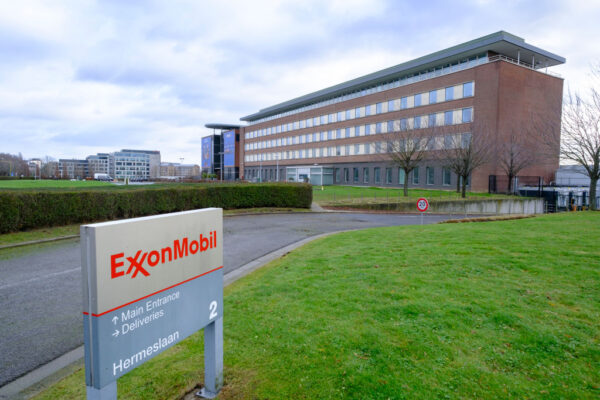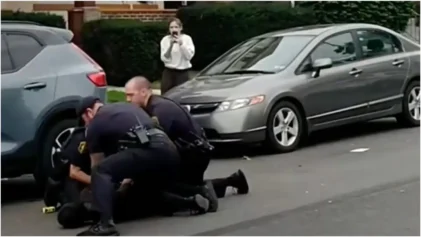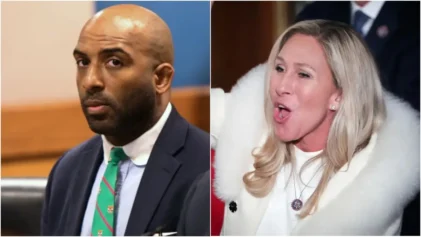The federal Equal Employment Opportunity Commission has filed a lawsuit against Exxon Mobil after the company neglected to address racially motivated harassment claims by Black workers, including investigating several nooses left in a Baton Rouge complex.
Now the government is seeking relief for employees who can prove they were discriminated against and treated poorly because of the color of their skin.

On Thursday, March 2, EEOC, the federal agency responsible for protecting the civil rights of workers, announced it filed a lawsuit against Exxon Mobil Corporation in the United States District Court in Baton Rouge for violating federal law when its human resources division failed to “prevent” hangman ropes from swinging in several of its locations three years ago.
Milferd McGhee is one of many individuals who complained and is the first to file his complaint with the EEOC.
The lawsuit was initiated by the EEOC’s New Orleans Field Office, which is part of its Houston District Office and has jurisdiction over Louisiana and parts of Texas. The agency said it attempted to reach a conciliation agreement with Exxon in February. But when the company failed to settle on terms, the commission working on the case filed the suit.
According to the complaint, the company, which does business as ExxonMobil Chemical Corporation, was informed of five nooses between April 2016 and December 2020 at the chemical plant and the nearby refinery. Despite Black employees bringing it to the attention of company executives, they found, as they reported, that very little was done.
The lawsuit states, according to The New York Times, that during the Exxon-initiated investigation, the company banned two unidentified contractors. However, it did not mandate diversity and inclusion actions “such as training, counseling or policy changes, to prevent further racial harassment.”
EEOC “alleges that ExxonMobil investigated some [of the noose complaints], but not all, of the prior incidents and failed to take measures reasonably calculated to end the harassment.”
“After the employee reported the noose in January, a fifth noose was reported in December 2020 at the complex,” it continued, adding, “ExxonMobil’s actions and omissions regarding the noose incidents created a racially hostile work environment,” violating the civil rights of its Black employees.
Rudy Sustaita, regional attorney for the EEOC’s Houston District Office, commented on the lawsuit, saying the energy company had “a legal obligation” to move swiftly to remedy the harassment, bringing the intimidation to an end.
Of such incidents, Michael Kirkland, director of the EEOC’s New Orleans Field Office, said, “Even isolated displays of racially threatening symbols are unacceptable in American workplaces.”
ExxonMobil shared in a statement on the lawsuit that it “promptly performed a thorough investigation of this claim, and there was no evidence to support allegations of discrimination. We disagree with the EEOC’s findings and allegations.”
“All matters are investigated, and anyone found to have violated these standards or applicable laws are disciplined up to and including termination. Any contractor offenders would be denied entry to the site,” the company maintains.
Yet nooses were found, the EEOC says, over four years on the work campus.
Nooses are traditional symbols of racial hate, oppression and violence.
The NAACP believes displaying a hangman’s noose should be considered a “hate crime.”
In 2008, the civil rights organization issued a declaration, saying, “the hangman’s noose has been used both directly and symbolically throughout American history to racially lynch, kill, terrorize and threaten African Americans, other racial or ethnic minority Americans, and their allies, eventually ushering in the very birth of the NAACP. The duty to protect African Americans and their allies from this iconic symbol of racial hatred rests with law enforcement officials whose swift, direct, and unambiguous action is necessary to end the racially divisive use of this symbol.”
The lawsuit says the government is seeking damages for McGhee’s “emotional pain and suffering, inconvenience, and humiliation.”
ExxonMobil has expressed that it disagrees “with the E.E.O.C.’s findings and allegations.”
In a statement, a spokesperson for the energy company that boasts it is one of the largest publicly traded international oil and gas companies, stated, “We encourage employees to report claims like this, and we thoroughly investigated.”
The statement continued, “The symbols of hate are unacceptable, offensive, and in violation of our corporate policies. We have a zero-tolerance policy of any form of harassment or discrimination in the workplace by or toward employees, contractors, suppliers, or customers.”


